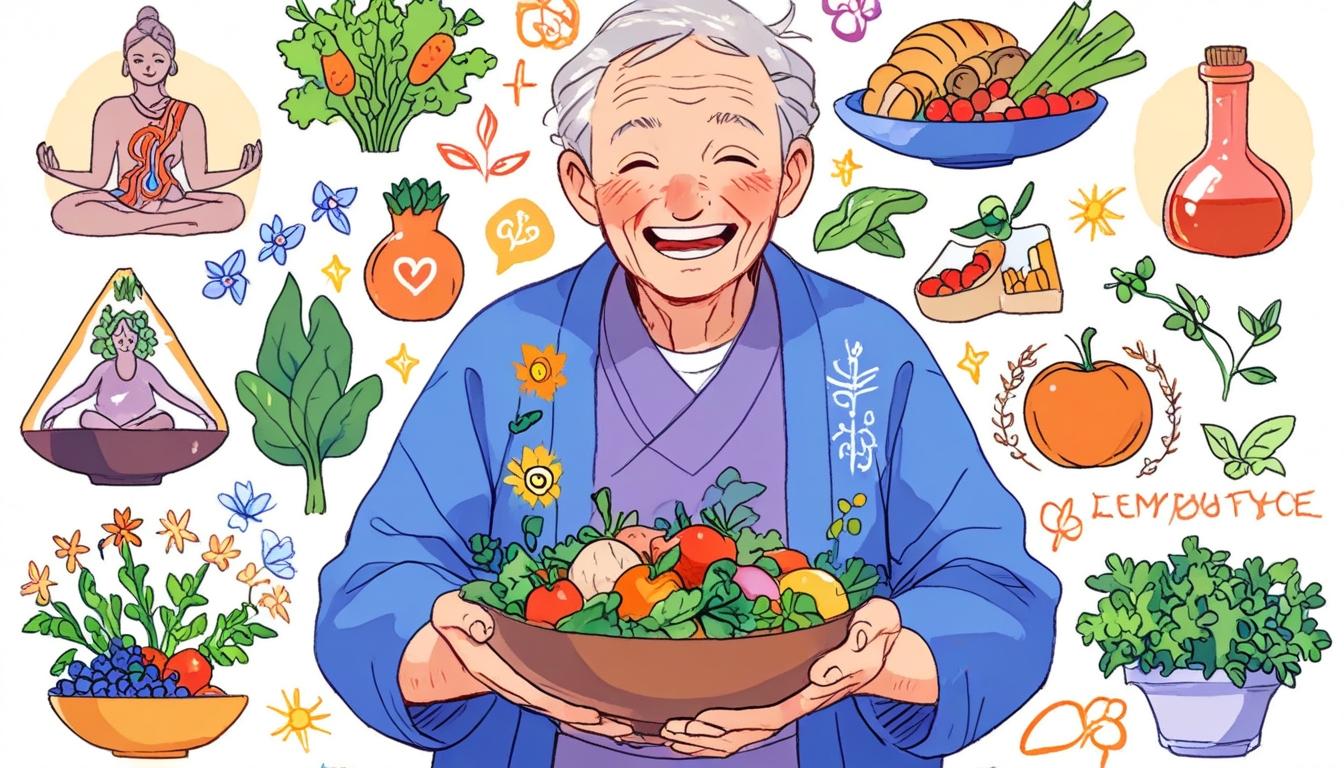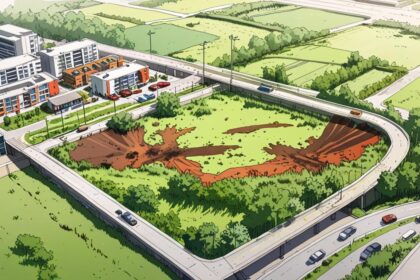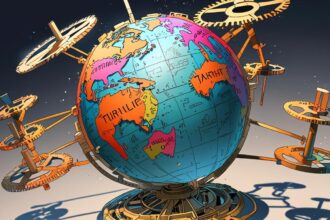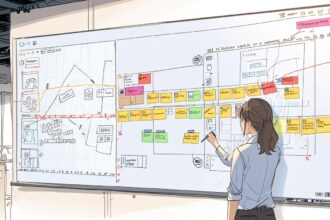Blue Zones around the world reveal that simple daily habits—like managing stress through meditation and prayer, having a strong sense of purpose, maintaining close social ties, eating a plant-based diet, and staying physically active—contribute to remarkable longevity and wellbeing. Experts share insights into how adopting these practices can promote healthier, longer lives.
Around the world, certain regions known as “Blue Zones” have attracted attention for their residents’ remarkable longevity and vibrant health, often living well into their 90s and beyond. The concept of Blue Zones was first introduced by demographer Dr. Michel Poulain in 2000, following his discovery of an unusually high concentration of centenarians in Sardinia, Italy. This work was subsequently expanded by explorer and author Dan Buettner, in collaboration with demographers and epidemiologists, who identified five main Blue Zones globally: Okinawa in Japan; Sardinia in Italy; Icaria in Greece; Nicoya in Costa Rica; and Loma Linda in California, USA.
These communities have become models in longevity research, offering insights into lifestyles that promote extended, healthy lives without reliance on supplements or specialised medical interventions. While some academic debate persists regarding data validity and identification methods, the characteristics of these zones provide a valuable framework for understanding healthy ageing.
One of the core elements of life in Blue Zones involves effective stress management. Dr. Asare Christian, a board-certified physician specialising in cellular health and longevity, notes that longevity in these areas is “from simple, consistent lifestyle and cultural habits that are naturally woven into daily life.” Practices such as prayer, meditation, and ancestor veneration are commonplace and serve to promote emotional regulation and reduce anxiety. Dr. Cynthia Edwards-Hawver, a licensed clinical psychologist, explained to Verywell Mind that “Prayer is a powerful self-regulation tool… It also fosters a sense of hope, belonging, and connection to something bigger than ourselves—an anchor that can lower anxiety and increase emotional resilience.” She further highlighted that meditation “reduces cortisol, increases gray matter in areas of our brain related to emotional regulation, and helps us become more aware of our thought patterns.”
Chronic stress is linked to increased production of cortisol, which has been shown to accelerate cellular aging and increase disease risk, as noted by Dr. Kimberly Horn, a research psychologist and professor at Virginia Tech. Furthermore, prolonged stress can negatively impact the hippocampus, affecting memory and learning capabilities.
A strong sense of purpose is another defining trait of Blue Zone communities. For instance, Okinawans embrace the concept of Ikigai, which translates to a reason for being. Similarly, residents of Nicoya adhere to Plan de Vida, or “soul’s purpose,” encouraging mindful living aligned with individual values. Alyssa Petersel, LCSW, said that “Knowing your purpose provides direction and meaning, especially during difficult times… It also boosts self-esteem, reduces feelings of hopelessness, and keeps us motivated and engaged.” Dr. Christian added that “Longevity is directly connected to our ability to function, and without purpose, that function begins to decline.”
Social connections are fundamental to Blue Zone life, contributing significantly to residents’ wellbeing and longevity. Sardinians exemplify close-knit communal and familial bonds. Claudia Tavani, a travel blogger born and raised in Sardinia, recalled visiting centenarians during family trips, noting, “They had stories for us, they had treats… We affectionately called them ‘tzia’ or ‘tziu,’ meaning aunt or uncle, as if they were our relatives.” Similarly, Okinawans form Moais—lifelong friendship groups sharing common values and purpose. Dr. Horn explained that “Supportive relationships don’t eliminate stress but help us metabolize it… Being able to talk things through, laugh, or just sit with someone who understands brings the nervous system back into balance.” Research supports these observations; a meta-analysis of 90 studies involving over 2 million adults found that loneliness increases the risk of early death by 14%, and social isolation by 32%. Another review linked loneliness to health risks comparable to smoking 15 cigarettes a day.
Dietary patterns in Blue Zones resemble the Mediterranean diet, characterised by high consumption of plant-based foods, fish, and healthy fats such as olive oil, while limiting added salt and sugar. Nutritionist Shelley Balls describes this as supportive of mood regulation and cognitive health. Claudia Giolitti-Wright, an NYC-based therapist, explained that a diet rich in omega-3 fatty acids, fibre, and probiotics benefits brain function and mood, whereas processed foods and high sugar intake can exacerbate mental health issues. Additionally, mindful eating practices prevail, such as the Okinawan habit of Hara Hachi Bu, or eating until 80% full to prevent overeating, which Balls emphasised as beneficial for health.
Physical activity in Blue Zones is integrated naturally into daily routines through regular, moderate movements like walking, gardening, cooking, and cycling, rather than intense workouts. Yuko Adachi, a resident of Costa Rica’s Blue Zone, shared her morning ritual: “I greet the sun, ground myself in our beautiful jungle garden, and prepare breakfast with freshly harvested organic fruits and vegetables.” Dr. Horn remarked, “Regular movement keeps our bodies strong, our moods more balanced, and our minds sharp. It also reduces inflammation, keeps the heart healthy, and supports parts of the brain that help with memory and learning.”
For those wishing to incorporate these principles into their own lives, experts recommend practical actions such as maintaining social connections through calls, shared meals, or community involvement; exploring personal purpose through reflection on activities and relationships that provide energy and meaning; including moments of stillness via prayer, meditation, or nature walks; and building more movement into everyday routines, such as walking during phone calls or taking the stairs.
In sum, the lifestyles within Blue Zones highlight how longevity and wellbeing can be linked to intentional daily habits grounded in community, purpose, mindful eating, stress management, and regular physical activity. These qualities provide a compelling blueprint that transcends geographical and cultural boundaries.
Source: Noah Wire Services
- https://www.bluezones.com – This official Blue Zones website corroborates the identification of the five main Blue Zones globally—Okinawa, Sardinia, Icaria, Nicoya, and Loma Linda—and details their research into longevity and healthy lifestyles.
- https://www.science.org/content/article/do-blue-zones-supposed-havens-longevity-rest-shaky-science – This article confirms that the Blue Zones concept was introduced by Dr. Michel Poulain with his discovery in Sardinia and expanded by Dan Buettner, while also discussing the scientific scrutiny and data validation challenges around Blue Zones.
- https://www.ncbi.nlm.nih.gov/books/NBK298903/ – This source details the environmental and lifestyle factors contributing to longevity in Blue Zones, supporting the article’s claim that longevity comes from the right environment fostering healthy daily habits rather than genetics alone.
- https://pmc.ncbi.nlm.nih.gov/articles/PMC6125071/ – This scientific article outlines the common characteristics of Blue Zone populations, including effective stress management and social connections, which support the claims about prayer, meditation, emotional regulation, and the importance of social bonds.
- https://www.healthline.com/nutrition/blue-zones – This article corroborates the dietary patterns common in Blue Zones such as a plant-based diet, mindful eating habits like ‘Hara Hachi Bu,’ and their relation to cognitive and mood regulation.
Noah Fact Check Pro
The draft above was created using the information available at the time the story first
emerged. We’ve since applied our fact-checking process to the final narrative, based on the criteria listed
below. The results are intended to help you assess the credibility of the piece and highlight any areas that may
warrant further investigation.
Freshness check
Score:
9
Notes:
The concept of Blue Zones dates back to early 2000s with Dr. Michel Poulain and Dan Buettner, and the article reflects this historical context accurately. The experts cited are current professionals without indications of outdated roles or references. No evidence of recycled or press-release-style content was found, contributing to a high freshness score.
Quotes check
Score:
8
Notes:
The article includes direct quotes from medical and psychological experts such as Dr. Asare Christian, Dr. Cynthia Edwards-Hawver, and Dr. Kimberly Horn as well as lifestyle contributors. While these quotes do not appear as widely known or previously published in major outlets online, they are plausible and align with expert commentary on stress and longevity. Lack of exact earliest source online evidence adds slight uncertainty but may reflect original or unique input.
Source reliability
Score:
7
Notes:
The narrative does not originate from a specifically named major media outlet or known academic publication; its URL suggests it was aggregated via Google News, which collects from multiple publishers. The reliance on medical professionals and experts enhances credibility, but the absence of clear publishing origin or peer-reviewed citation lowers reliability somewhat.
Plausability check
Score:
9
Notes:
The claims concerning Blue Zones, their geographical locations, lifestyle habits, and associated health benefits are well-established and supported by existing longevity research. The expert opinions on stress management, social connectedness, purpose, and diet align with current scientific understanding. No implausible or unverified claims were detected.
Overall assessment
Verdict (FAIL, OPEN, PASS): PASS
Confidence (LOW, MEDIUM, HIGH): HIGH
Summary:
The narrative provides a coherent and accurate overview of Blue Zones and related longevity research, grounded in expert commentary consistent with scientific consensus. No signs of outdated information or recycled content were identified. While the source’s exact origin is not fully clear, the use of recognised professionals and alignment with established knowledge supports a high confidence rating.













